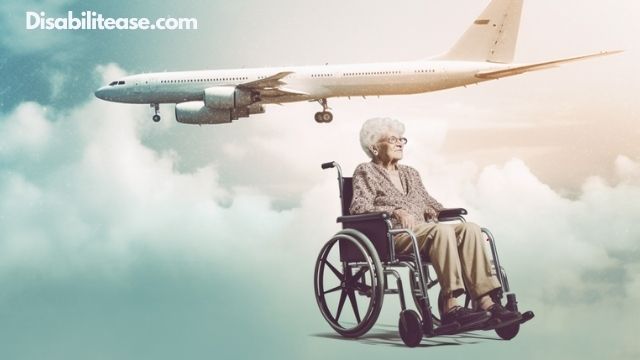Do you know if travel insurance can be easily obtained for disabled and elderly people?

Travel insurance is an important part of any vacation, and it’s especially important for those who have special needs.
In this article, we’ll explore the types of travel insurance available to disabled and elderly people, the benefits of having such coverage, as well as the potential risks of not having it.
With this information in hand, you’ll be able to make an informed decision about whether or not travel insurance is right for you.
Table of Contents
Types of Travel Insurance for Disabled and Elderly People
Knowing the different types of travel insurance available for disabled and elderly people can help ensure you have a safe and secure trip. Generally, there are two main types of travel insurance: comprehensive and limited coverage.
Comprehensive coverage offers policyholders protection for medical expenses, cancellations, lost items, and more. This type of policy is usually the most expensive option but can offer peace of mind when traveling abroad or to areas with increased risk.
Limited coverage policies are typically suitable for short trips that don’t involve high-risk activities or long-term stays. These plans often cost less than comprehensive plans, but they don’t offer as much protection in case something goes wrong while on vacation.
When considering different types of travel insurance for disabled and elderly people, it’s important to compare costs between various providers as well as review each policy’s coverage details carefully before making your decision. Taking a few moments to research your options will help you find the best plan that suits your needs and budget without compromising on quality protection.
Additionally, make sure to ask about any additional discounts or benefits associated with certain policies so you can get the most value out of your purchase.
No matter which type of travel insurance plan you decide to go with, it’s essential that you are aware of all potential risks before departing on your journey so that you are adequately prepared in case anything unexpected happens during your trip. Moreover, having an understanding of all available benefits will allow you to make an informed decision when selecting the right policy for yourself or a loved one who may be traveling with special needs or requirements due to age or disability.
Benefits of Having Travel Insurance

Having travel insurance can provide peace of mind when taking trips, especially for those who are less mobile. It’s important to understand the benefits of having travel insurance, as it can ensure that disabled and elderly travelers are protected in case of an emergency or accident while away from home.
Some key benefits include:
- Access to claims processing services in the event of an unexpected emergency or illness
- Coverage limits tailored specifically to individual needs
- Assistance with medical bills if needed, and
- The ability to replace lost items during a trip.
Travel insurance is also helpful for ensuring peace of mind if plans need to be changed due to unforeseen circumstances, such as inclement weather or flight cancellations. Travel insurance can even protect valuable items like passports and other documents that may be necessary when traveling abroad.
All these factors combine to make travel insurance an invaluable asset for any traveler, but especially those who are disabled or elderly.
Potential Risks of Not Having Travel Insurance

Without the protection of travel insurance, you could be exposed to a variety of risks and unforeseen expenses when journeying abroad. Traveling without insurance can be especially worrisome for disabled and elderly people due to age-related concerns.
Without the right coverage, medical costs arising from accidents or illnesses can quickly add up for these groups, leaving them with an unexpected financial burden. Furthermore, if damage occurs to any mobility aids that they require while on their trip, such as wheelchairs or hearing aids, they may have no way to replace it without comprehensive travel insurance.
Travelers who are unable to obtain traditional travel insurance due to disability or old age should look into specialized policies that provide coverage tailored to their specific needs. These policies often include additional benefits that cover the loss of personal items and emergency evacuation services.
Being adequately prepared in case of an emergency is essential for anyone traveling but even more so for those who may need special assistance due to a disability or advanced age.
By investing in the right kind of travel insurance policy, disabled and elderly travelers can enjoy worry-free vacations, knowing that they are covered against potential risks and expenses during their journey. With the peace of mind offered by this extra layer of protection, all travelers, regardless of age or ability, will be able to experience new places with confidence and security.
Conclusion
You definitely need travel insurance when you’re disabled or elderly. It can provide peace of mind, knowing that if something goes wrong on your trip, you’ll be covered for any medical bills or other expenses.
Plus, there are several different kinds of policies available to suit different needs and budgets. Don’t take the risk of not having it – make sure you get the right coverage before embarking on your journey!

Hi, my name is Eddie, I am a professional trainer specializing in the elderly population and I’m also a website designer. I love training in the gym, going to the beach, traveling, and having good food.
I combined my love for sport and website designing to make “DisabilitEase” whose purpose is to help elderly and disabled people live a more full and active life, have more fun, and enjoy their unique journey despite any disability.



